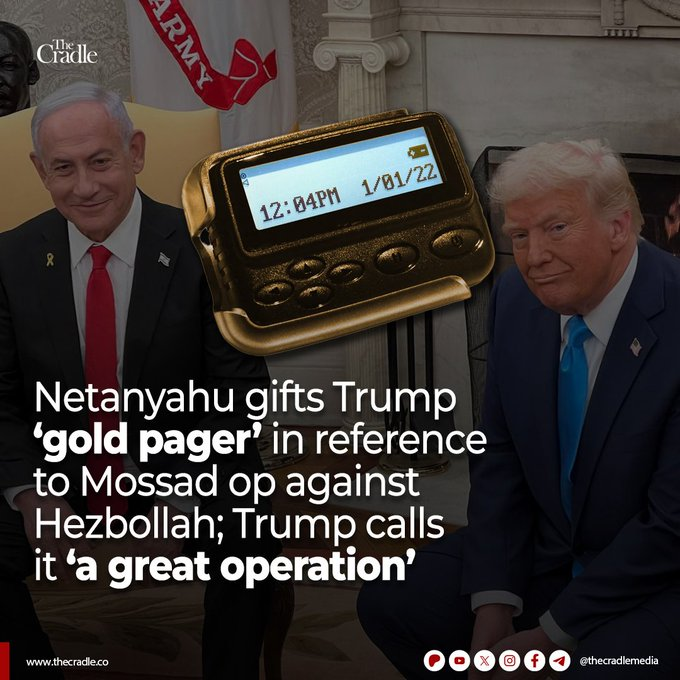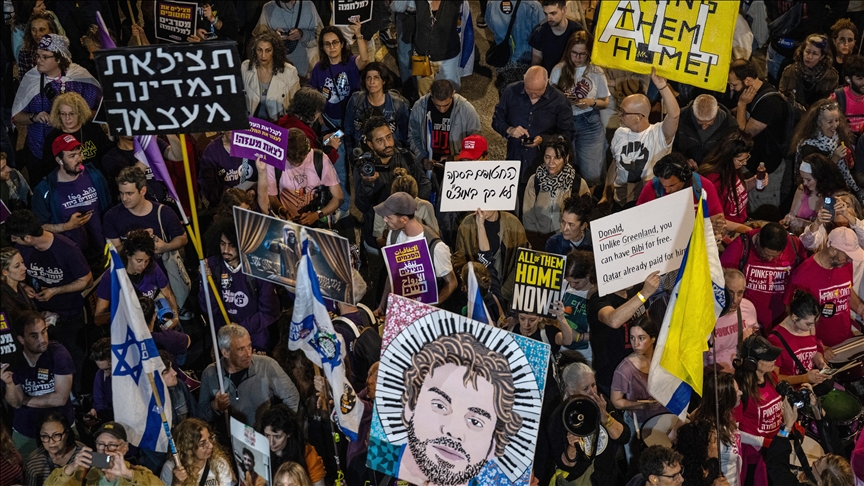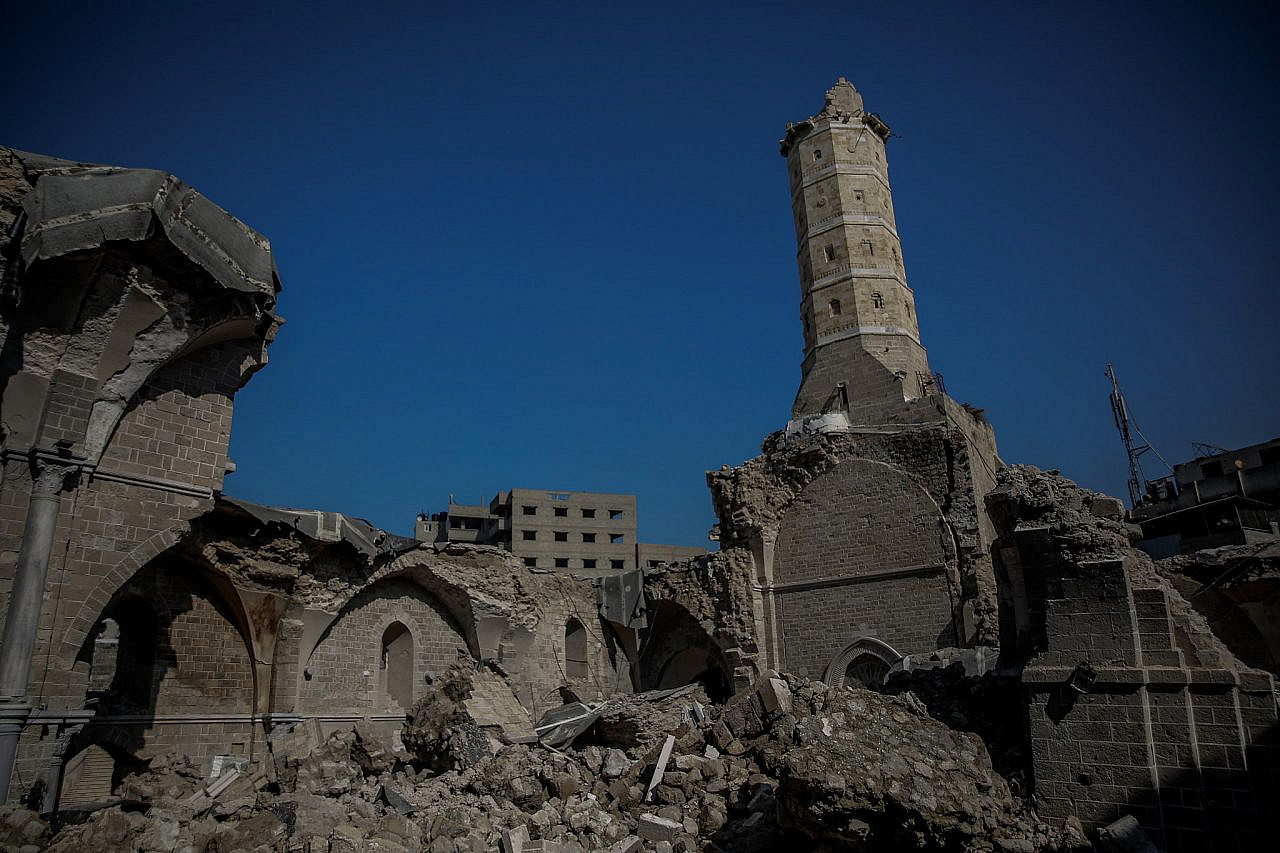
By Ahmet Yusuf Ozdemir
US President Donald Trump has made an astonishing and deeply troubling proposal: the United States should take control of Palestine’s Gaza and transform it into a ‘Riviera of the Middle East’. He even claimed, “Everybody I’ve spoken to loves the idea of the US owning that piece of land.” The question is: who exactly is this “everybody”?
The answer seems clear when you consider that Trump made this announcement standing beside none other than Israeli Prime Minister Benjamin Netanyahu, the architect of the ongoing devastation in Gaza.
To further amplify the absurdity, Marco Rubio, Trump’s Secretary of State, took to social media to gleefully tweet: “Make Gaza Beautiful Again.” This is a vision that sees Gaza not as a place of human struggle, resilience, and history, but as an empty plot of land—waiting to be “beautified” by foreign intervention, with little regard for the millions of lives it holds.
Gaza has been on the news headlines again after October 7, 2023. Israel, Egypt, and the Mediterranean Sea surround it. Movement into and out of it is heavily controlled, as Israel has enforced a nearly complete land, sea, and air blockade of the area since 2007.
This small pocket of land has attracted the world’s attention every one or two years for the last one and a half decades but is also sometimes forgotten. If you are someone who is reading about Gaza for the first time in your life with this article, you may think the author is talking of a deserted island, uninhabitable place, or “a land without a people.”
In fact, Gaza is 365 square kilometres of land, and it inhabits 2,351,000 people, which makes it one of the densest areas in the world, with 6441 people per square km. One should also avoid the statisticalisation trap where people who are living in Gaza are human beings with stories and memories. They are faces rather than mere numbers. However, it becomes clear that political language in the United States with the new Donald Trump administration will be based on the dehumanisation of Gaza.
The implications of his words at the press conference on February 5, are staggering. Trump’s proposal is a glaring reminder that in the eyes of many world leaders, the people of Gaza—Palestinians—are reduced to little more than background noise in a geopolitical game.
This isn’t just about land or politics; it’s about the systematic erasure of a people, their history, and their struggle for self-determination. To Trump, Gaza isn’t a place of suffering and resistance—it’s an opportunity for rebranding. It’s a strip of land to be “fixed,” a place to be renovated into a “tourist destination,” regardless of who lives there or the decades of hardship they’ve endured under a brutal occupation and blockade.
Colonialism rebranded
What Trump’s rhetoric reveals is a deeply troubling mindset—a belief that Palestinians in Gaza have no voice, no agency, and no right to self-determination or votes.
Their homes, their land, their very existence, are reduced to a resource for someone else to exploit, more valuable than the people living on it. This may come as a surprise to some observers, but this is a modern-day manifestation of colonialism, echoing the Manifest Destiny doctrine in the United States—a belief that one nation has a divine right to control another’s land, regardless of the people who have lived there for generations. It’s the kind of thinking that has long fuelled the oppression of indigenous peoples, and it is alive and well in Trump’s vision for Gaza.
The legal context around this proposal only deepens its gravity. The International Criminal Court (ICC) has issued arrest warrants for Israeli officials, including Netanyahu and former Defence Minister Yoav Gallant, for crimes against humanity and war crimes. The International Court of Justice (ICJ) has condemned Israel’s actions in Gaza as genocide.
And yet, Trump’s words seem to offer a dangerous legitimisation of the very actions that have brought Gaza to the brink of collapse. Netanyahu’s rhetoric only adds fuel to the fire. In a speech soon after October 7 where he infamously referred to Palestinians as “animals” and invoked the biblical story of the Amalekites, justifying violence with religious fervour. “You must remember what Amalek has done to you,” he said.
This was not an ordinary reference, but put in the context of war, it could be interpreted as “genocidal intent.” Netanyahu was referring to the following passage; “‘I will punish the Amalekites for what they did to Israel when they waylaid them as they came up from Egypt. Now go, attack the Amalekites and totally destroy all that belongs to them. Do not spare them; put to death men and women, children and infants, cattle and sheep, camels and donkeys.’”
This is not just inflammatory speech—it’s the rhetoric of destruction, one that seeks to dehumanise and erase an entire population.
Trump’s chilling comments about the people of Gaza add to this. When asked whether Palestinians would ever be able to return to their homes if Gaza were to fall under US control, Trump responded bluntly: “I don’t think people should be going back to Gaza. I think that Gaza has been very unlucky for them. They’ve lived like hell…the only reason they want to go back is because they have no alternative.”
Notice how he frames it: Gaza isn’t a homeland—it’s a prison. Palestinians, in his view, are not people with rights, dreams, or a history—they are mere sufferers, trapped in a place they should leave behind. The use of “they” is telling: Trump doesn’t even use the word “Palestinian” when he talks about Gaza. It’s as though the very identity of the people who live there has been erased.
Resilience
But despite the relentless violence and oppression, the spirit of the people of Gaza remains unbroken. After the ceasefire between Palestinian resistance forces and Israel, which came after weeks of unimaginable destruction, Gaza’s resilience was on full display. Thousands of Palestinians returned to their homes in the northern part of Gaza, even though Israel has tried to make it uninhabitable.
This wasn’t just a physical return—it was a powerful statement of defiance, a refusal to be erased. During the release of Israeli hostages, Palestinians expressed solidarity with the resistance in a show of strength: smiling, cheering, even taking photos with fighters from the Qassam Brigades. This is a people who refuse to submit to occupation. Their will is unshaken.
So, while Trump’s words might make headlines, they also expose the lengths to which certain powers will go to suppress Palestinian resistance, to break their spirit, and to erase their struggle for justice. If this vision is allowed to continue, the Middle East could be facing a future marked by further instability, deepened injustice, and a growing humanitarian crisis.
But as Gaza has shown time and time again, the Palestinian struggle will not be easily silenced. No matter the attempts to erase them from the map, the people of Gaza will remain, with their history, their identity, and their fight for freedom.

Ahmet Yusuf Ozdemir
Ahmet Yusuf Ozdemir is an Assistant Professor of Political Science and International Relations Department at Ibn Haldun University.









